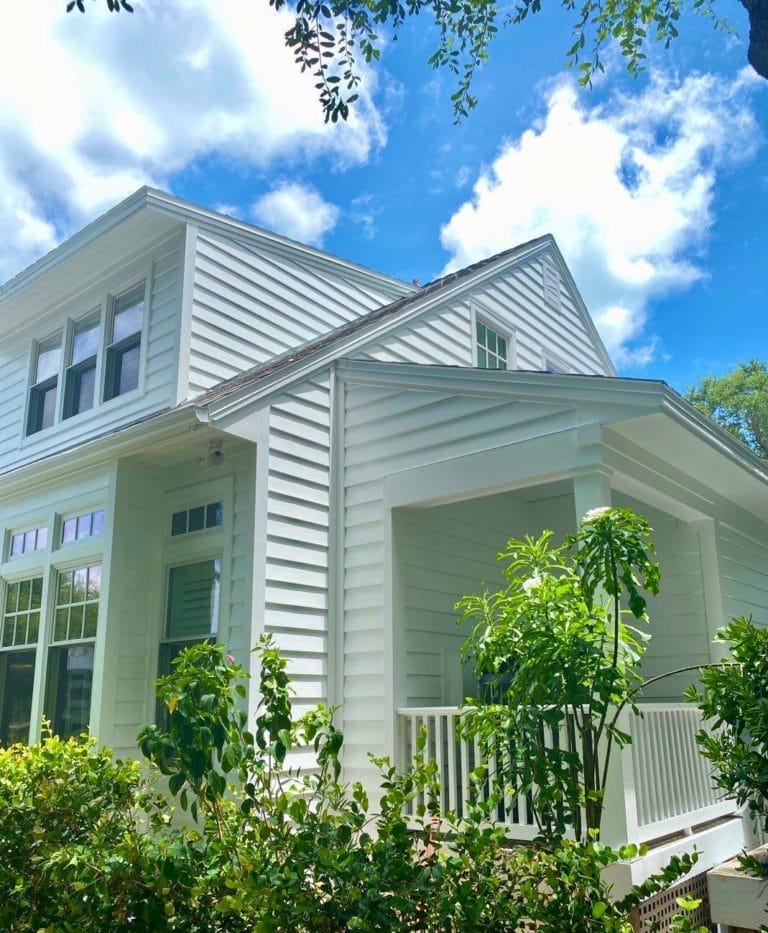When you hire the right siding contractor, you’re engaging not only a skilled team of craftspeople, you’re also getting a valuable source of information. Your knowledgeable builder can help you choose the type and style of siding that will perform and look best on your home or business. Your siding contractor will show you the benefits, costs, and potential problems with each siding material and walk you through the contracting, building, and payment process.
But how can you be sure the contractor you select will deliver quality work, a fair price, and a pleasant working relationship? Holeman urges you to spend some time learning about siding products and installation. When you understand the process and your options, you can decide some issues for yourself and ask the right questions when interviewing potential construction partners. You will know what to accept at face value and what to take with a grain of salt. Here’s what you should know before signing a contract:
Do I need new siding?
If your existing siding has been damaged by weather, impact, or age, you should consider replacing it immediately to avoid further deterioration to your home’s framing and interior and to prevent energy waste. Missing or loose siding panels are sure signs that work needs to be done. Loose siding allows moisture to seep in, creating mold, mildew, and wood rot that causes more problems – and higher repair costs – than just an ugly exterior. Siding that is not firmly affixed to the home’s walls also cannot adequately protect it and its contents from termites, mice, and other pests nor can it insulate the home and keep cool, conditioned air from leaking out.
Aesthetics is another perfectly good reason to hire a contractor to install siding on your home. If the house currently is clad in wood, brick, or stucco, you may simply want to make a dramatic change to its appearance with a low-maintenance option that will provide superior insulation and look great for decades. New siding also creates strong curb appeal and increases your home’s value if you are intending to sell.

Which siding is best for the South Florida climate?
Our harsh sun, high humidity, frequent thunderstorms and salt air (not to mention hurricanes) create formidable challenges for keeping our homes cool and looking beautiful. Hardie Board insulation provides the best defense against extreme weather, wear and tear, and uninvited wildlife.
Hardie board combines wood fibers to give the siding a wood-grain texture with siding with a lightweight cement mixture to give it the strength and toughness to stand up to anything Mother Nature can throw at it. Hardie Board is heavier and, well, hardier than vinyl, making the material and installation a bit more expensive, but the benefits are well worth the cost. Hardie Board offers unparalleled insulation properties, making your home not only easier to heat and cool, but also providing a sturdy barrier to moisture, drafts, and noise. Maintenance is also a snap. Clean it a couple of times a year with mild detergent and a soft-bristle brush. Paint it as needed – usually every 8 to 10 years – far less than often than wood.
How do I find a reliable contractor?
When you’re ready to get started on your new siding project, you will want to engage a contractor that is not only skilled in the installation but also ensures you are comfortable with the job throughout the project. This means taking the time to explain the process, communicating throughout, delivering excellent customer service, and promptly and courteously fixing anything that goes wrong.
Start by compiling a list of potential contractor partners. Ask neighbors and family members for recommendations. Look through companies’ website portfolios, Check out online review sites. You will want to pick an installer who is knowledgeable about and has experience with the type of siding you have chosen. Narrow your pool to three or four strong candidates. Visit the Florida Department of Business and Professional Regulation’s website to make sure everyone on the list is appropriately licensed. Licensing means the contractor has demonstrated an understanding of his or her trade and the state’s construction laws, maintains the proper bond and insurance, and has passed a criminal background check.
Ask your finalists for an estimate. Be sure that each is working from the same set of specifications and materials you want. The final cost should be one of several factors you consider when making a final choice. For instance, if you receive bids of $15,300, $14,900, and $8,200 there’s a good chance that the low bid is not responsive to the specs. Interview your top choice to establish communication and gain a full understanding of the cost and services to be provided before signing the contract.
